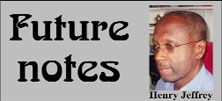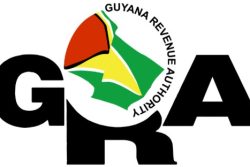Important elements of the wider strategy that finally brought down the PPP were: internal subversion to discredit the regime; various forms of economic pressure which, contrary to PPP propaganda, at best led to economic stagnation; more electoral manipulation, this time in the form of the imposition of proportional representation which favoured the opposition forces and the resuscitation of the long concluded Guyana/Venezuela border dispute as a backstop in the event that the PPP was still able to prevail.
At the 1964 elections the PPP received 45.8% percent of the votes which translated into 24 seats in the national assembly; the PNC 40.5% of votes and 22 seats; the United Force 12.4% with 7 seats. The die was cast and differing from the tradition, the governor did not even bother to request that Cheddi Jagan, the leader of the majority party, attempt to form a government. Instead he called upon Burnham and the PNC/UF government was established. The cost upon the Guyanese people was heavy but the anti-communist forces had finally succeeded.

It must be something of a testimony to the injuring nature of our political condition that half a century later, this is still the type of reasoning at the heart of the hopes and fears of both the PPP and the current coalition as the current elections looms.
In the interest of national development, even before the 1964 elections Jagan called upon the PNC to form a coalition with his party. Having been manipulated out of government he still sought to do the honourable, sensible and conventional thing although by this time he must have known that the local and international bourgeoisie, that had invested much time, resources and effort to see the back of him, would not have allowed his party any space to govern.
Forbes Burnham gave all manner of reasons for choosing to coalesce with the UF rather than the PPP. For example, he reportedly signalled to the members of the youth arm of the PNC, the Young Socialist Movement, which was vociferous in its support for a PNC/PPP coalition, that he intended, as he did, to quickly rid himself of the United Force. This, he could not accomplish if he joined the much stronger PPP.
Of course, democratic politics is about negotiations and compromise, i.e. deal making, and for the reasons suggested above, Burnham’s was more a rationalization than an explanation. Given the concessions he had to make to national and international capital, a PNC/UF coalition was the only sensible option on the table.
On this point, the contemporary PPP must be the only political party in the modern democratic world that eschews sensible negotiations and compromise. Having lost its overall majority and ipso facto, the independent capacity to make laws, it sought to govern without forming a coalition or making some significant concessions to the opposition.
It now faces a sizable group of supporters who believe that its approach was unrealistic and unfair and it must now expend valuable resources attempting to convince them that what they have actually experienced is the fault of the opposition.
One only needs to listen to the crocodile tears of the President and his cortege since Babu John, of the frustration the opposition has put them through since 2011, to realise that the party envisaged a real problem and is trying to explain why it has not been able to work with the prorogued parliament.
In its explanatory narrative, democracy means that the PPP should have been able to take its shopping list; inclusive of Marriott, Amaila hydro, specialty hospital, airport expansion, etc. to the national assembly: claim that it is in the national interest and the opposition was obliged to give its support after some superficial discourse!
As we have seen above this is not the way democratic politics work and therefore the PPP’s approach was doomed to fail and bring us to the acrimonious place we are today. However, fortunately for it, we live in a country in which most people are on the lookout for a modicum of reasoning to support their traditional ethnic block. Therefore, the foolishness being peddled by the PPP will do for most but hopefully; not for all.
In relation to my column last week, former Attorney General, Justice Charles R Ramson stated that: “Tucked away at the beginning 14 lines earlier his analysis did identify 1961 as the year in point, artfully omitting that in 1964 a post-electoral alliance, stage-managed by the USA/UK via the Governor of British Guiana did oust the PPP from government.”
Hopefully, Justice Ramson must now realize that mine is an attempt at a more or less chronological analysis of modern coalition government which only today arrived at 1964!
I suspect however, that he sought to utilize this ruse to launch into the usual PPP ramblings about elections been rigged, the role of the CIA in removing Jagan, the economy being destroyed by the PNC, etc. all with a dash of self-explanatory personalisations, to timely contribute to the PPP’s elections propaganda.
For future reference, the Justice should take note that his kind of analysis which attempts to expound upon the travails that befell the PPP, should be more substantive. As it is he began where, so to speak, the national bourgeoisie and their allies ended their consideration. That is, no one denies that much of what he said and perhaps more, occurred in the effort to remove the PPP from government. The question is why was it so important to remove the PPP?
The answer is that there were sufficient people in Guyana and elsewhere who believed that the intention of that party was to establish a regime in which gulags were the preferred mode of punishment and majority rule cannot legitimize such a regime. Indeed, the father of the modern absolutist/ Leviathan state theory, Thomas Hobbes, claimed that even the most authoritarian state must operate according to law and “the safety of the people is the supreme law.” Furthermore, “by safety must not be understood the sole preservation of life in what condition soever, but in order to its happiness” (Thomas Hobbes -1651- “On the Citizen,” Self published).
Therefore, long political thought and extant international political experience suggested to the liberal democratic movement in Guyana that preemption was in order. Indeed Mr. Ramson, from a national perspective, the PPP’s story which seeks to politically denigrate all those who stood against it, is in need of major revision!
henryjeffrey@yahoo.com






